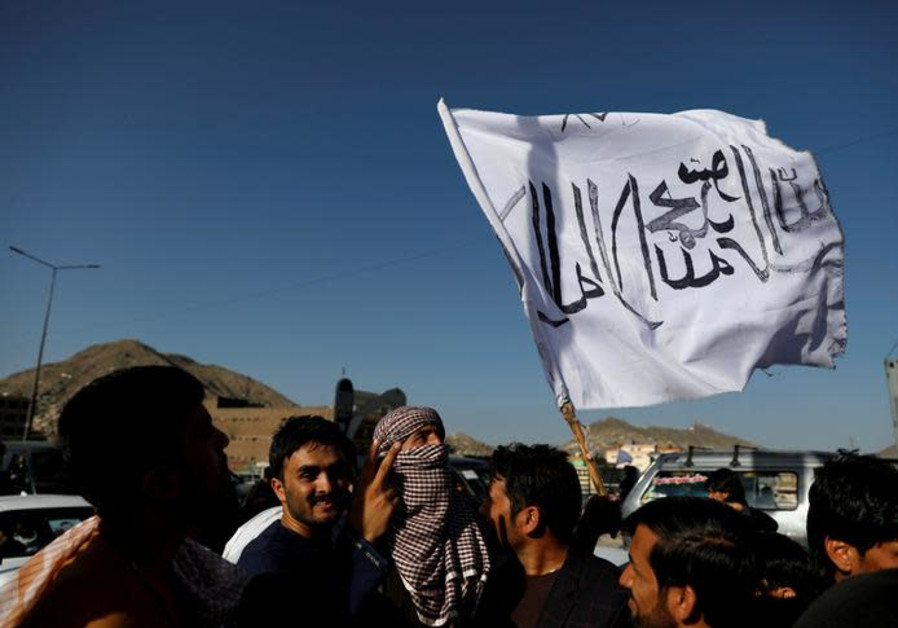Trump’s Afghan gamble is about to begin

A member of the Taliban holds a flag in Kabul, Afghanistan June 16, 2018. The writing on the flag reads: ‘There is no god but Allah, Muhammad is the messenger of Allah’. (photo credit: REUTERS/MOHAMMAD ISMAIL)
US President Donald Trump wants to end the “endless wars,” which he says have burdened the US for decades and which have become a sunk cost with diminishing returns. He and others who have sought to work out a deal in Afghanistan, such as envoy Zalmay Khalilzad, are focused on technical details after a recent round of talks with the Taliban.
That was one problem with the Iran Deal: US adversaries knew that the administration desperately wanted the deal. This is quite an achievement for the Taliban, which was supposedly defeated in 2002 during the brief war in Afghanistan that followed the September 11 terror attacks. But they bid their time and fought and fought, and have clawed their way back.
That has been one problem in Syria, with Washington saying it would stay in Syria as leverage against Iran, then saying it would leave and then saying again that it would stay. At least America’s adversaries don’t know what America is really up to, but there is also a sense that sometimes the administration lacks clarity as well. On Afghanistan however, there is clarity: The “endless war” should end.
Pete Buttigieg, who served in the war in Afghanistan, has pointed out that those born after 9/11 will soon be serving in this conflict, which began because of 9/11. That’s like people born after the Vietnam war started serving in Vietnam. It is a stark reminder of how long the US has been in Afghanistan. Documentaries about the war, like Restrepo, are now almost ten years old.
Certainly US adversaries will be watching, such as Iran and Russia. Other historical US allies who have hedged their bets with regard to Iran, such as Turkey and Qatar, will also be watching. Qatar is helping to host the Afghan talks. Trump has the rest of fall 2019 to see if his gamble can work – and not fall.
`; document.getElementById(“linkPremium”).innerHTML = cont; (function (v, i){ });





Comments are closed.